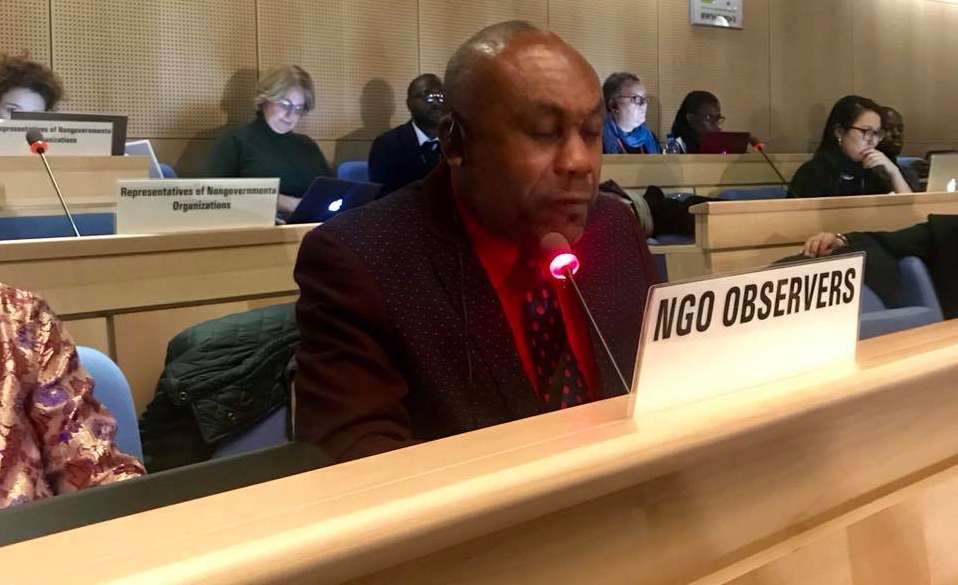
CRN+ Chair participated in UNAIDS Programme Coordinating Board (PCB) MeetingChair invited to be member of the Civil Society Advisory Group (CSAG)
Image: CRN+ Chair, Mr Winfield Tannis-Abbot participating as a member of the Civil Society Advisory Group (CSAG) to the UNAIDS Programme Coordinating Board NGO Delegation
The CRN+ Chair, Mr Winfield Tannis-Abbot, participated as a member of the Civil Society Advisory Group (CSAG) to the UNAIDS Programme Coordinating Board NGO Delegation and present at the Thematic Segment of the UNAIDS Programme Coordinating Board (PCB) meeting held on 14 December 2017. The Chair also participated in the UNAIDS PCB side events from 11-14 December 2017 and utilised the opportunity to network on behalf of CRN+.
The UNAIDS Programme Coordinating Board agreed to:
Request UNAIDS’ continued support to member states, through collaboration with community-based organizations and civil society, for monitoring and reporting, including through the Global AIDS Monitoring system, on progress made toward the Fast-Track targets, using where feasible disaggregated data, as a means of leaving no one behind;
Requests UNAIDS and member states, in partnership with civil society organizations and all other relevant stakeholders to:
• Develop and apply country-level, community-participatory evidence gathering methodologies to identify barriers and measure the level and quality of access to services for all at-risk populations so as to leave no one behind;
• Develop methods for assessing community engagement in countries, in line with the core principles of the Joint Programme and the UNAIDS Strategy 2016-2021;
• Request the UNAIDS to facilitate partnerships between member states and community-based organizations to help ensure effective action to meet HIV prevention, early diagnosis and treatment needs so as to leave no one behind.
WHAT IS PANCAP?
PANCAP is a Caribbean regional partnership of governments, regional civil society organisations, regional institutions and organisations, bilateral and multilateral agencies and contributing donor partners established on 14 February 2001. PANCAP provides a structured and unified approach to the Caribbean’s response to the HIV epidemic, and coordinates the response through the Caribbean Regional Strategic Framework on HIV and AIDS to maximise efficient use of resources and increase impact, mobilise resources and build the capacity of partners.
What are the Global AIDS Strategy 2021–2026 targets and commitments?
If targets and commitments in the strategy are achieved:
- The number of people who newly acquire HIV will decrease from 1.7 million in 2019 to less than 370 000 by 2025
- The number of people dying from AIDS-related illnesses will decrease from 690 000 in 2019 to less than 250 000 in 2025.
- The goal of eliminating new HIV infections among children will see the number of new HIV infections drop from 150,000 in 2019 to less than 22,000 in 2025.
What are the 95-95-95 Targets for ending AIDS?
- 95% of People Living with HIV know their HIV status;
- 95% of people who know their status on treatment; and
- 95% of people on treatment with suppressed viral loads.
HELPFUL LINKS:
Global AIDS Strategy 2021–2026, End Inequalities, End AIDS
https://pancap.org/pancap-documents/global-aids-strategy-2021-2026-end-inequalities-end-aids/
Caribbean Regional Strategic Framework on HIV and AIDS (CRSF) 2019-2025
https://pancap.org/pancap-documents/caribbean-regional-strategic-framework-2019-2025/
